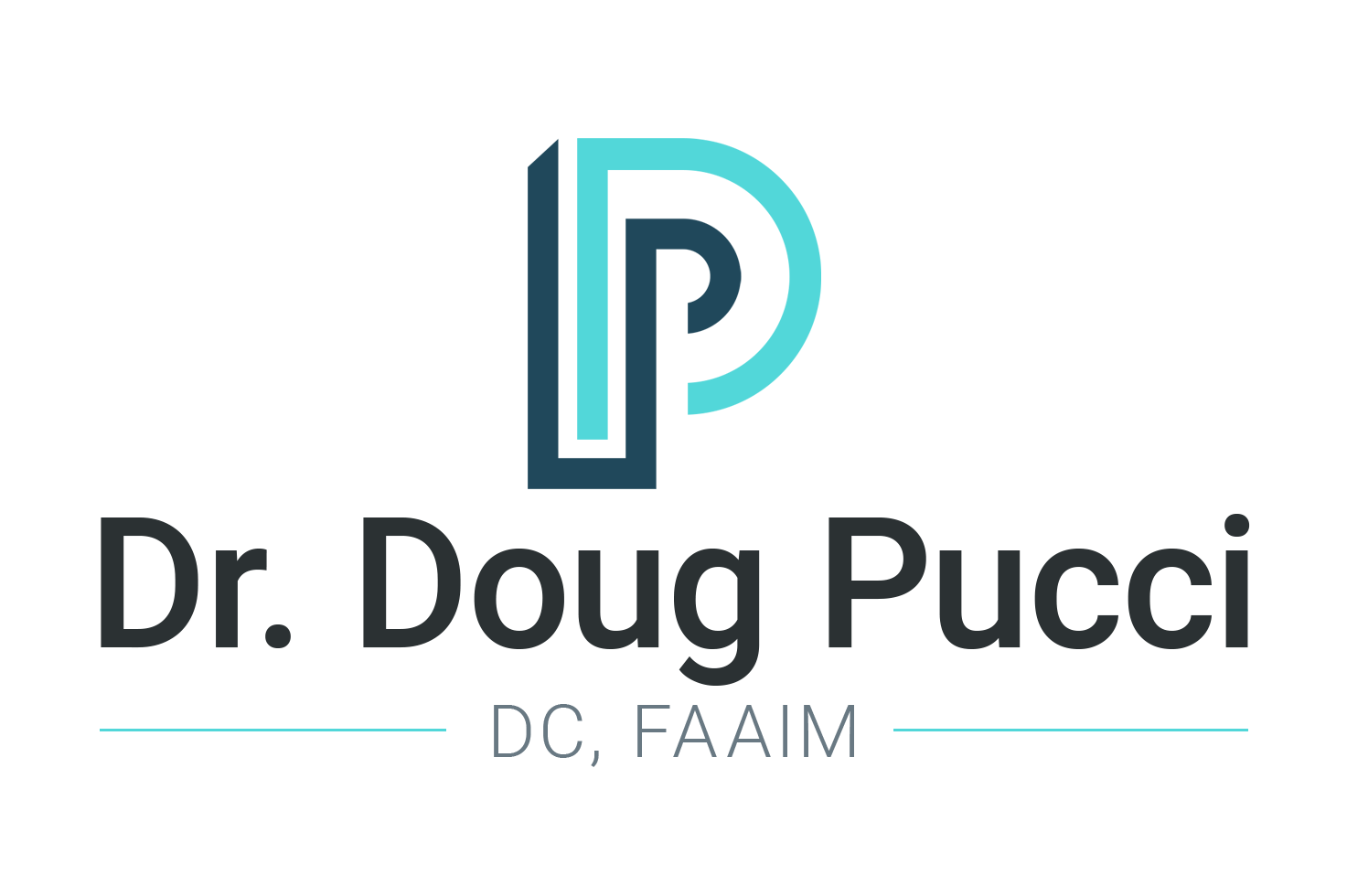Gaining Weight, Eating Too Often, and Still Craving the Wrong Foods? 5 Popular Dietary Strategies That Trigger Weight Gain and Cause Metabolic and Hormonal Stress
One of the traps people often fall into is diving into new healthy-sounding diets they hear about from Dr. Google, friends, or family members, but they’re jumping in with only superficial knowledge of that particular dietary lifestyle. The concepts and buzzwords associated with these diets are reinforced while grocery shopping, when they see labeling and buzzwords such as “gluten free”, “keto-friendly” or “paleo” without really understanding what those dietary choices mean.
We’ve compiled the five biggest misconceptions people have when trying a new type of diet based on hearsay and generalities.
Mistake #1: Gluten Free is Grain Free
Just because packaged foods are marked “Gluten Free” doesn’t mean they’re healthy; in fact, most have added sugar and are heavy in processed grain flours. These wheat flour substitutes can still be reactive for gluten-sensitive people, causing similar immune system reactions to gluten. In addition, processed grains are still carbs and are converted to sugar in the body, causing the same kinds of insulin surges as sugars. So even though cookies, breads, and snacks are labeled gluten-free, it doesn’t mean they’re healthy choices.
If you have celiac disease or you’re trying to remove gluten from your diet altogether, you need to remove all gluten-containing grains and processed grain foods. There are some seed-based alternatives like flax and hemp, but for the most part, it’s best to move away from any type of processed grain.
Mistake #2: Not Watching Your Keto Carbs
Like other diets, if you want to get the benefits of a keto diet, you need to adhere to the guidelines. Unfortunately there are a large number of people who think they’re doing keto but are actually doing a modified paleo diet mixed with a few keto concepts. Without a full understanding and adherence to every aspect of keto, you won’t reach your objectives and you’ll most likely gain weight.
Many people make the mistake of not sticking to the fat requirement (70-80% of your daily caloric intake), and even more people eat too many carbs, which can come from less obvious sources including starchy vegetables like corn, potatoes, squash, and peas. Carbs should be limited to 5-10% of your daily caloric intake.
Another key mistake people tend to make is becoming over-reliant on processed meats: bacon, hard salami, chicken sausage, luncheon meats, cured and salted meats, etc., which can drive up your histamine response and heavily increase your sodium intake, possibly leading to hypertension.
The point of the keto diet is to push your body into ketosis, which is a higher fat-burning state.
You can think of keto as an adjunct to an otherwise already healthy Mediterranean diet.
Mistake #3: Paleo = Bacon, Bacon, And More Bacon!
The paleo diet is another misunderstood dietary choice, mostly because articles about paleo can be illustrated with images of piles of meat, giving the impression that you have a green light to freely consume lavish amounts of bacon and hamburger.
This couldn’t be further from the concept of true paleo, which is focused on an understanding of our ancestral diet driven by the hunter/gatherer lifestyle and, like with keto, does not embrace processed meats. For example, major components of the paleo diet are nuts, berries, seeds, mushrooms, and in-season fresh vegetables including micro greens in spring. When it comes to meats, it’s about the whole animal including and especially organ meats and bone broth, as well as wild-caught fish and pasture-raised animals.
More than a diet, paleo can be thought of as a lifestyle: think farm to table or forage to table. Paleo supports the concept of foraging—eating smaller meals more often throughout the day to help stabilize blood sugar. A great book that explains this well is Nom Nom Paleo by Michelle Tam and Henry Fong, in which they demonstrate how paleo is beneficial for the whole family as opposed to other diets that are more isolationist or exclusionary.
Grow Your Knowledge of Functional Medicine
Sign up and receive instant access to The Root Cause Solution and begin your journey back to better health!
Sign upMistake #4: Intermittent Fasting (IF) Is Good For Everyone
Intermittent fasting has received a lot of attention and has become a sort of dietary buzzword that has generated quite a bit of interest. The basic idea is to concentrate your caloric intake to a shorter period of time (typically an 8-hour period), then allow your body to rest and process food overnight.
Unfortunately, people often use IF as an excuse to skip breakfast and have a big dinner; this isn’t the point of IF—in fact, having breakfast and skipping dinner is a better option. Indulging in a big or heavy dinner defeats the purpose, since your digestive process slows down at night while you sleep. To get the benefits of IF, move your higher caloric intake to the earlier part of the day and use intermittent fasting no more than two or three days a week, eating regularly on other days.
Intermittent fasting can help you achieve results such as reducing insulin resistance, weight loss, inflammation reduction, and helps the body initiate the cell waste removal process, among other things. Certain cardiometabolic patients, like those with type 2 diabetes, cardiovascular disease, or who are overweight have benefitted from IF. Like keto, IF is a strategy that can be incorporated periodically—hence, the “intermittent” part of the term.
Intermittent fasting is a viable strategy for some people but not for everyone, particularly if you’re hypoglycemic. If your blood sugar drops in the morning, or if you skip a meal and your blood sugar drops causing anxiety, panic, heart palpitations, or feelings of anger or irritability, IF is not a strategy that would work for you.
Mistake #5: Vegan Is Another Word For “Healthy”
Veganism is a vegetable-based diet in which all protein consumed is from plants, including soy. However, plant proteins are generally incomplete proteins (except for soy and hemp) and lack important amino acids, so most vegan diets need to be supplemented with amino acids as well as other essential vitamins and nutritional supplements, like B-12 and CoQ10.
It’s incredibly labor-intensive to eat a strict vegan diet and get the required nutrients and calories you need throughout the day. The reason some celebrities are able to follow veganism successfully is that they have knowledgeable chefs preparing their food on a regular basis.
There are several major problems with veganism that I have frequently encountered in my practice. These include:
- People with exceedingly low cholesterol, which contributes to an overall low hormone profile (testosterone and progesterone).
- Vegans tend to eat too many carbs because of the difficulty in preparing vegan foods; at the same time, very few vegans regularly eat enough healthy fats (like nuts and seeds) that are critical for many bodily functions.
- It’s rarely sustainable for growing children who need a full range of healthy proteins, including those from eggs, fish, fowl, shellfish, and so on, in order to support brain and hormone development.
- Over-reliance on soy as a “meat-like” food (i.e., hamburger-like substitutes and cheese-like replacements) which is unhealthy when it comes to the endocrine system; soy is actually estrogen proliferative.
Plus, A Reminder to Not Overlook Reading the Labels
The most important thing you can do for your health and to reduce inflammation in your body is to stick with a whole foods diet—eating fresh food that you prepare at home rather than buying processed and packaged foods. A lot of people look for general terms on packaged foods like “gluten free”, “keto-friendly”, “low carb”, “vegan”, or “paleo-friendly” and assume the products are healthy and fit their dietary choices. If you find yourself doing this, next time make sure you look carefully at the nutrition information.
For the most part, packaged foods contain excessive amounts of sodium and added sugar and can contain other unhealthy ingredients as well. A typical mistake is buying gluten-free chicken sausage—the package may even say “minimally processed”, making it sound even better, but read the label well and you’ll find that each link has 500mg of sodium. To make that even worse, it’s not unusual for someone to have two links with breakfast. Also, packaged food companies very often strip out nutrients in order to make their products shelf-stable.
Anyone avoiding dairy to focus on more plant-based foods might think Chobani extra creamy oat milk would be a good milk replacement, but each serving actually has 18g of added sugar. With the glut of packaged products trying to attract consumers looking for fast, ready-to-eat foods, desserts and snacks that appear to fit their dietary lifestyle, it’s extremely important to read labels carefully and not make assumptions or believe marketing hype.
The one sure way to follow an anti-inflammatory diet is to buy whole foods and prepare them at home, where you can be sure of every ingredient. Simpler eating that includes more healthy fats, fish, fresh seasonal fruits and vegetables, microgreens, herbs and spices and follows the basics of the Mediterranean diet is the best way to eat healthy and get the nutrients your body needs naturally.
Dr. Doug Pucci is a functional medicine practitioner who was honored in 2020 to receive both The Best Of 2020 Awards for Functional Medicine in Oradell, NJ, and entry into Trademark Publications’ Who’s Who Directory, Honors Edition, for his pioneering work. He provides comprehensive testing for health biomarkers, advanced discovery into brain/body well-being and personalized nutrition for a diversity of people and symptoms.
For more information, call 201-261-5430 or visit GetWell-Now.com











